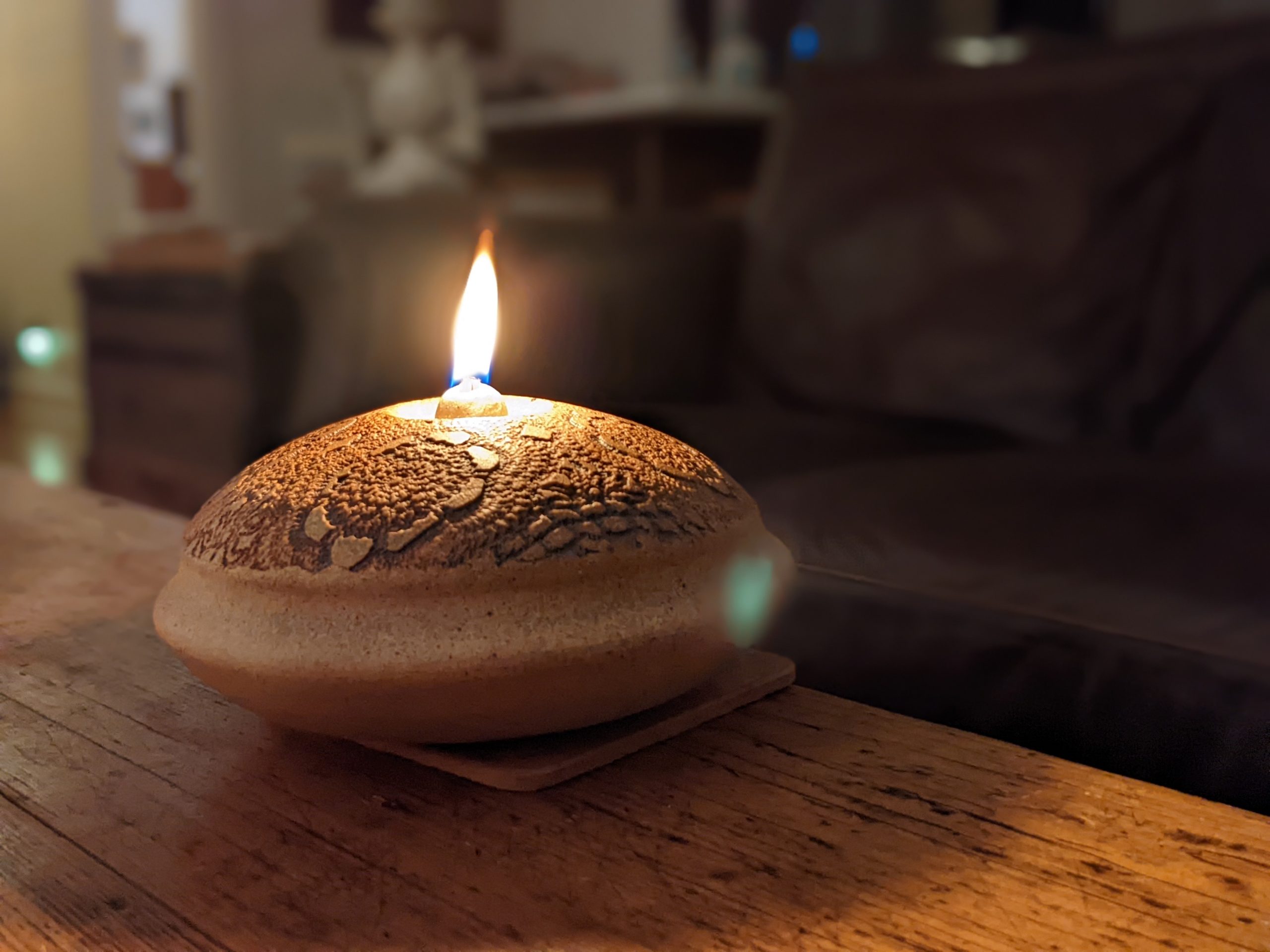
Have you ever used an oil lamp before? While not so common in our modern electricity-centric world we live in today, lamps are still used for both their decorative as well as their functional aspects.
So in its most basic design, an oil lamp has three major components:
1. The vessel
2. The wick
3. The oil
What are their functions?
1. The vessel functions as the base and holds the oil and the wick.
2. The wick serves as the conduit for the oil to travel to the surface to be set on fire.
3. The oil serves as the energy or power. It is the ultimate reason for the vessel and the wick.
What do they represent spiritually?
1. The vessel represents our body
2. The wick represents our essence (soul and spirit)
3. The oil represents the Holy Spirit
How does the lamp apply to our everyday life?
1. What happens when you light a lamp without oil? The flame is smoky and the wick will eventually burn up and burn out. What light there is will be short-lived. You’ll have no real light coming from you spiritually.
2. What happens when you have oil but the wick is proud? It will burn some oil and all the wick. It’ll smoke and you’ll run out of light over a period of time because your wick will burn up. Your self-effort will eventually wear you down and you’ll be of no use to God. The Holy Spirit will have to turn inward and work on you instead of working through you for others. This is where most Christians are. Doing (performance) rather than being (abiding). Some, however, come to the end of their wicks; which is coming to the end of themselves.
3. What happens when you have the oil and you trim the wick? It is possible to trim a wick to the point where it doesn’t burn at all. Only the oil from the lamp burns. This is perfect light that lasts without smoke and without using up the wick. The wick is the conduit for the oil. We are to be like the trimmed wick. Surrendered so that the Holy Spirit can do God’s will through us. We are to simply be, ready to do.
Now, what about the fire or the light? What comes to mind when you stare at this flame?
Here are some thoughts from John Henry Jowett:
In 2 Chr. 7:1 – “When Solomon finished praying, fire flashed down from heaven and burned up the burnt offerings and sacrifices, and the glorious presence of the LORD filled the Temple.”
And the fire is the symbol of the Holy God. Pure flame is our imperfect mode of expressing the Incorruptible. This burning flame is heat and light in one. And when Solomon had prayed, the holy Flame was in their midst.
But not only is the flame the symbol of the Holy; it also typifies the power which can make me holy. We have no cleansing minister to compare with fire. Where water fails, fire succeeds. After an epidemic, water is comparatively impotent. We commit the infested garments to the flames. It was the great fire of London which delivered London from the tyranny of the plague. And so it is with my soul. God, who is holy flame, will burn out the germs of my sin. He will “purify Jerusalem with the spirit of burning.” “Our God is a consuming fire.”
Come to my soul, O holy Flame! Place Thy “burning bliss” against my wickedness, and consume it utterly away!
Jowett continues with another thought:
1 Thessalonians 5:5-8 “For you are all children of the light and of the day; we don’t belong to darkness and night. 6 So be on your guard, not asleep like the others. Stay alert and be clear-headed. 7 Night is the time when people sleep and drinkers get drunk. 8 But let us who live in the light be clearheaded, protected by the armor of faith and love, and wearing as our helmet the confidence of our salvation”.
Can we think of a more beautiful figure than this—“children of light”? As I write these words I look out upon a building every window of which is ablaze with light, every room the home of attractive brightness. And my life is to be like that! And I look again and I see a lighthouse sending out its strong, pure, friendly beams to guide the mariner as he seeks his “desired haven.” And my life is to be like that! And I look once more, and I see a common road lamp, sending its useful light upon the busy street, helping the wayfarer as he goes from place to place. And my life is to be like that!
And if my soul is all lit up in friendly radiance for others, the light will be my own defense. Light always scares away the vermin. Lift up a stone in the meadow, let in the light, and see how a hundred secret things will scurry away. And light in the soul scares away “the unfruitful works of darkness”; they cannot dwell with the light. Light repels the evil one; it acts upon him like burning flame. Yes, we are well protected when we are clothed in “the armour of light.”
But how can we become “children of light,” holy homes of protective and saving radiance? Happily, it is not our lot to provide the light, it is ours to provide the lamp. If we offer the lamp the Lord will give the flame.”
Jowett finishes with:
“Angels, nor principalities, nor powers.” These mysterious agents of darkness, for they must be the legions of the evil one, are unable to quench the light and fire of my Saviour’s love. The devil can never blow out the lamp of grace.”

